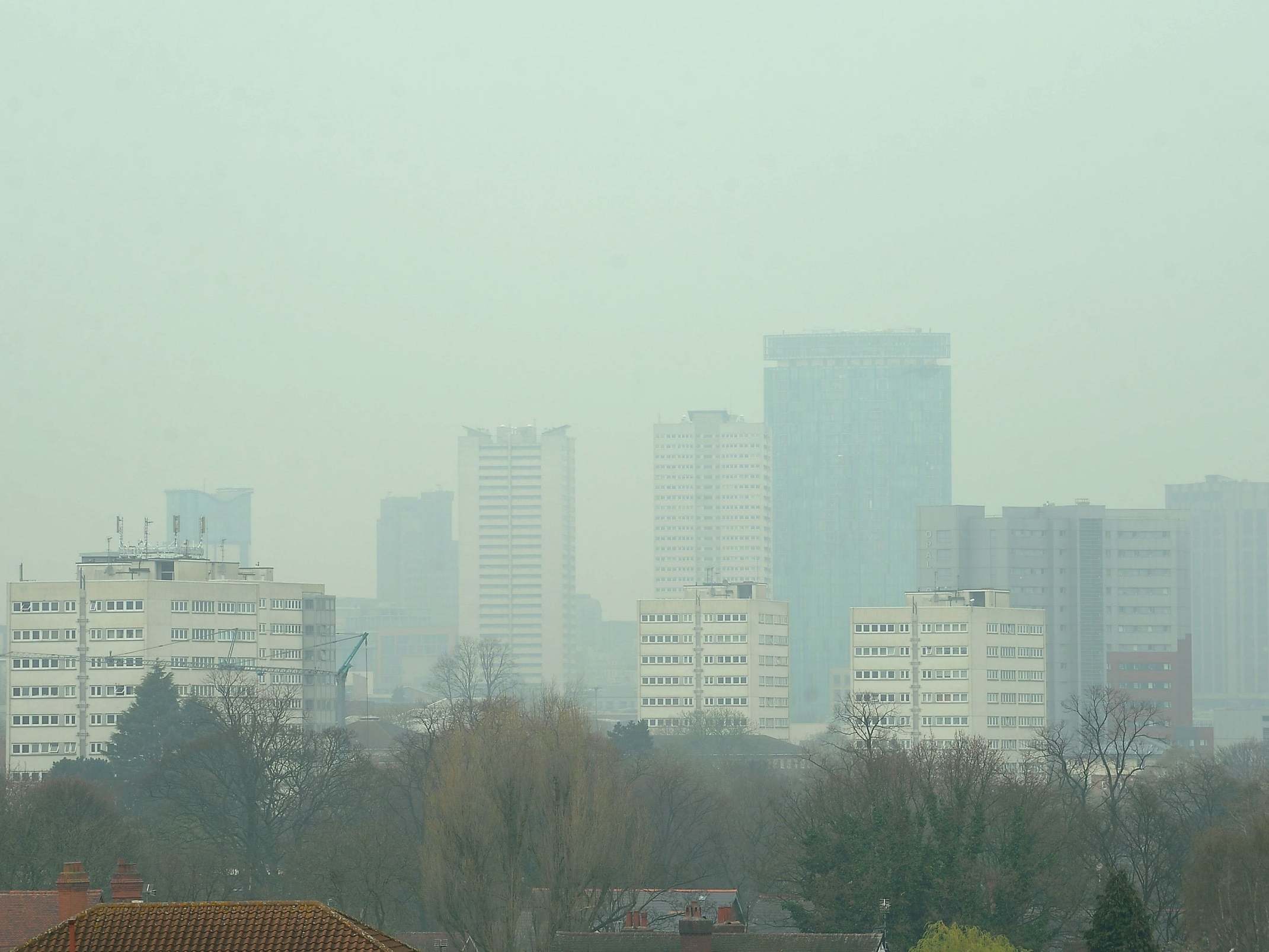Air pollution gives hundreds of thousands of European children asthma, study finds
Researchers say huge numbers of cases could be prevented with stricter guidelines on emissions

Up to a third of new cases of childhood asthma in Europe could be caused by air pollution, a study has found.
Hundreds of thousands of children from one to 14 years old are believed to have been made ill each year by breathing in pollutants, researchers estimate.
Around 1.1 million children are believed to suffer from asthma in the UK.
It is thought that pollution from traffic can damage airways, leading to inflammation and the development of asthma in children who are genetically predisposed to the condition.
The study, led by the Barcelona Institute for Global Health (ISGlobal), looked at the burden of asthma on more than 60 million children across 18 European countries, including the UK.
They compared asthma incidence with estimations of levels of exposure to pollutants.
The research found that 11.4 per cent of asthma cases (66,567) could be prevented each year if countries adhered to the maximum air pollution levels recommended by the World Health Organisation (WHO) for the tiny particles known as PM2.5.
This equates to more than 10,000 cases in the UK being prevented annually.
But only 0.4 per cent (2,434 cases) across the countries would be prevented with the reduction of another pollutant, nitrogen dioxide (NO2), which is a better marker of traffic sources.
The researchers believe these guidelines are outdated and need to be lowered and if countries went further, tens of thousands more cases of childhood asthma could be avoided.
In the UK, 44,895 cases (29 per cent of the UK total) could be avoided if the country reduced air pollution to the lowest levels recorded in 41 previous studies.
And 191,883 cases (33 per cent) could be avoided each year across the 18 European countries in the study.
For the NO2 pollutant, 135,257 (23 per cent) could be stopped if the countries adhered to the lowest levels.
If a third pollutant, black carbon, was reduced to the lowest levels, 19,139 UK cases and 89,191 cases across the 18 countries could be avoided annually.
Haneen Khreis, lead author of the study and a researcher at the Texas A&M Transportation Institute in America, said: “Only in the past two years, several analyses on air pollution and onset of childhood asthma have emerged, strengthening the case from different research teams that air pollution is contributing substantially to the burden of paediatric asthma.
“Largely, these impacts are preventable and there are numerous policy measures which can reduce the ambient levels of, and children's exposures to, outdoor air pollution. We can and should do something about it.”
Ella Kissi-Debrah, who lived near the South Circular Road in Lewisham, southeast London, died in 2013 after having an asthma attack.
The nine-year-old's death will be re-examined at an inquest, to determine whether it was linked to air pollution.
Dr Samantha Walker, director of policy and research at Asthma UK, said: “It is outrageous that children across the UK are breathing in toxic air that is causing them to develop asthma, a serious and debilitating medical condition that leaves them struggling to breathe and at risk of a life-threatening asthma attack.
“Poisonous air is also a trigger for asthma attacks and we estimate that it could affect the asthma of more than half a million children in the UK.
“This research is yet another reminder that the government needs to tackle air pollution as an urgent priority and commit to meeting air-quality standards from the World Health Organisation in its upcoming environment bill.
“No child should face the risk of getting asthma or having a life-threatening asthma attack because of filthy air.”
Press Association
Join our commenting forum
Join thought-provoking conversations, follow other Independent readers and see their replies
Comments